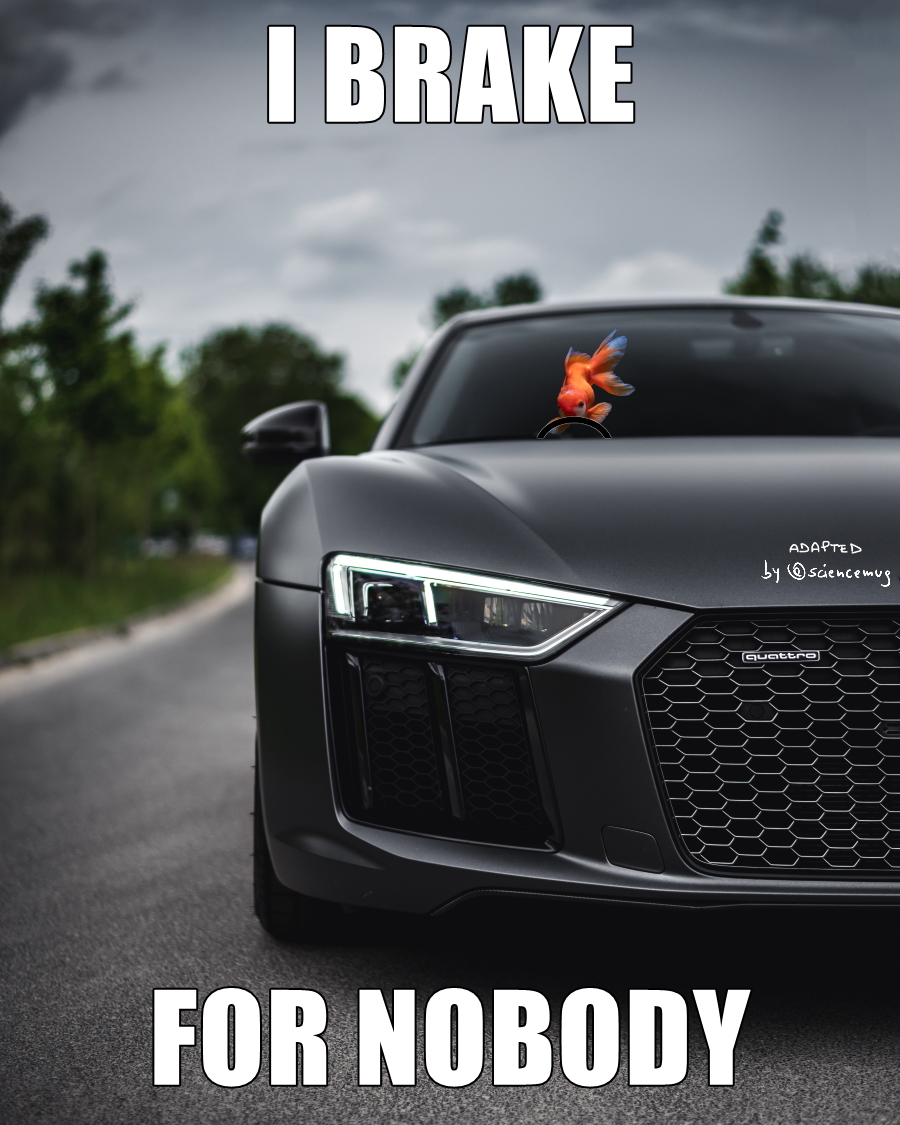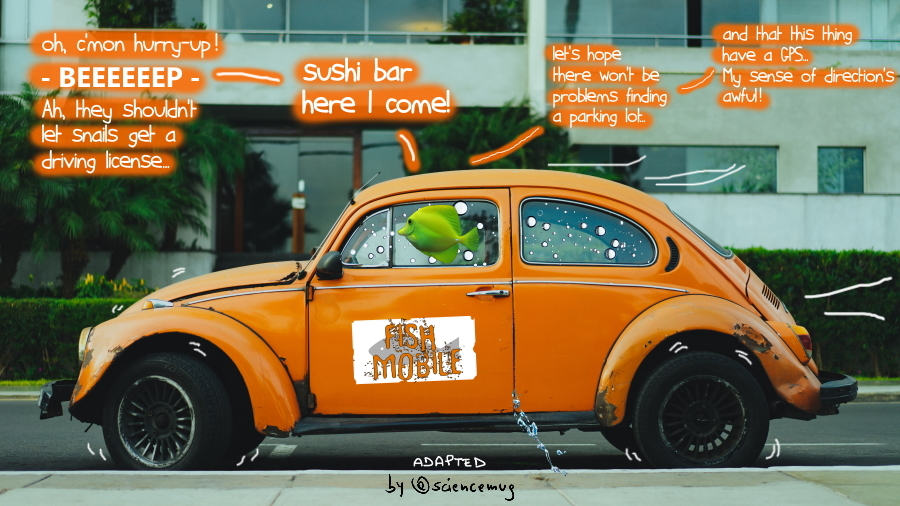 |
| Goldfish drives fast a super car (by @sciencemug) Goldfish pic by zhengtao tang, and car pic by Damian Ochrymowicz, are free images (source: Unsplash); all pics adapted by @sciencemug |
So folks, four researchers from
Israel (aka the Fab4), put six goldfishes (Carassius
auratus) at work (Givonet al, 2022 (P))
to see whether space representation and navigation skills (which
allow animals to do plenty of things, like finding food, shelter, sex
buddies and so on) are shared properties across the animal kingdom,
or, instead, they specifically depend on the different species, brain
structure, and ecological system.
The researchers, in their
study, use the "domain
transfer methodology, where one species is embedded in another
species’ environment and must cope with an otherwise familiar (in
[their] case,
navigation) task" (P):
in layman's terms, the Fab4 want to see if a fish can navigate
through a terrestrial environment.
To check that, the brains
train each fish to "drive" something called <Fish
Operated Vehicle> (aka FOV). The FOV is a water tank (35×35×28
cm) put on a four wheeled self-propelled platform (40×40×19 cm),
equipped with a pole, on top of which there are a computer, a camera
and a lidar. By this control apparatus, whenever (and only when) "the
fish [gets] near
one of the water tank walls and facing outwards, the FOV is
automatically propelled in
[such] direction" (P).
The machine, with its aquatic driver, is then placed in the
center of a three by four meters room, illuminated with artificial
light, and with white walls and one or more colored boards stuck on
them. The colored spots are the targets the fishes are trained to
reach in exchange for a food reward (consisting of a 0.002 g food
pellet of the same kind the fishes are usually fed with).
Well, dear reader,
in the end, the goldfishes training's success, they can reach the
targets, adapt to changes in such targets positioning and overall
overcome the "distortion
in vision due to refraction through the air-to-water interface
[and the] differences in
the natural structure of the terrestrial and aquatic environments" (P).
The Fab4's work (that they define "an
observational report, rather than a scientific study"
(P), and that needs follow-ups ) shows, thus, that "a
fish [is indeed] able
to transfer its space representation and navigation skills to a
wholly different terrestrial environment, thus supporting the
hypothesis that the former possess a universal quality that is
species-independent" (P).
But this dumb blog, in the following cartoon, shows you, dear reader, what's the next step of this experimental journey humanity has embarked on.
A green fish drives a car full of water to a sushi bar (by @sciencemug))
The car pic by Dan Gold , the green fish pic by Gábor Szűts, the bubbles pic by Alberto Bianchini and the spilling water pic by Pixa Karma, are free images (source: Unsplash); the fish drawing by Mrmw, is under the Creative Commons CC0 1.0 Universal Public Domain Dedication (source: Wikimedia Commons); all images adapted by @sciencemug


No comments:
Post a Comment
Thanks for your comment dear reader!